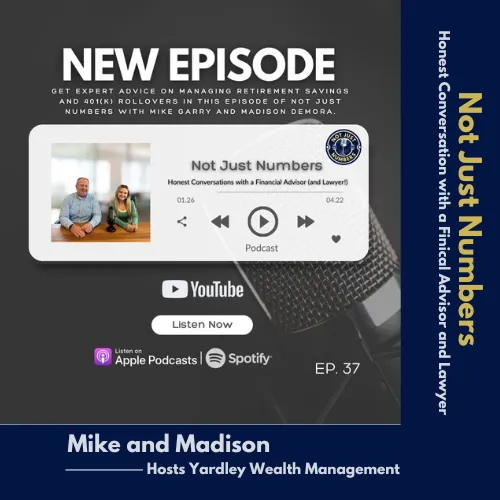Episode 37:Making the Right Move: 401(k) vs. IRA – What’s Best for Your Retirement?
Hosts: Madison Demora and Mike Garry
Episode Overview
In this episode, Mike Garry addresses a listener’s question about long-term care insurance thresholds before diving into a critical analysis of a Wall Street Journal article about 401(k) retirement decisions. The discussion highlights common misconceptions about retirement account options and provides clarity on the differences between keeping funds in a 401(k) versus rolling them into an IRA. Mike also identifies several inaccuracies in the article’s presentation of investment costs, advice options, and legal protections.
Listen to Our Podcast On:
Timestamps
- 00:08 – 03:56 – Introduction & Fan Mail Question on Long-Term Care Insurance
- 03:57 – 05:52 – Introduction to episode topic: Making the Right Move: 401(k) vs. IRA – What’s Best for Your Retirement?
- 05:53 – 08:21 – Benefits of Rolling over a 401(k) into an IRA & Why Retirees Leave Money in 401(k) Plans
- 08:22 – 10:43 – Role of Fees and Costs in 401(k) vs. IRA Decisions & Fiduciary Protection in 401(k) vs. IRA
- 10:44 – 12:36 – Impact of Retirement Saving Decisions on Estate Planning & Challenges for Financially Illiterate Retirees
- 12:37 – 15:06 – Access to Annuities in IRA vs. 401(k) & Flexibility of Withdrawals from 401(k) vs. IRA
- 15:07 – 25:09 – Mike’s Critique of the Wall Street Journal Article
Follow Us on Social Media
Stay updated with the latest episodes and news by following us on social media:



